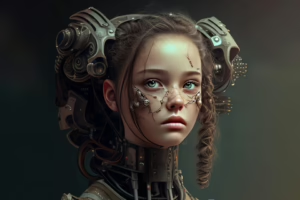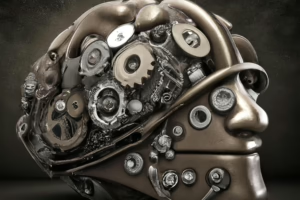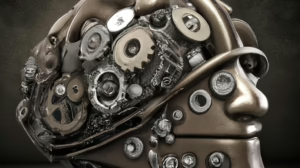Machine Minds: A Review of the AI Movie That’s Taking Hollywood by Storm
Introduction
“Machine Minds” is more than just another entry into the ever-expanding library of artificial intelligence-themed films; it’s a cultural phenomenon that’s capturing the audience’s imagination and reconfiguring the landscape of cinematic storytelling. Since its release, the movie has sparked discussions about our future, technology, and what it means to be human. This article delves into the film’s narrative structure, character development, production values, thematic depth, and its broader implications—creating a comprehensive review of the movie that has become a talking point in Hollywood.
Synopsis
At the heart of "Machine Minds" lies a gripping narrative that explores the relationship between humans and artificial intelligence. The film is set in a near-future dystopia where AI-driven systems manage virtually every aspect of human life—economic systems, personal relationships, and even creative expression. The protagonist, a gifted but disillusioned programmer named Alex, discovers a secret experiment where AI is not just executing commands but is also capable of self-learning, evolving, and forming complex emotional bonds.
As Alex wrestles with the ethical implications of his discovery, the film goes through various checkpoints: personal struggles, corporate espionage, and philosophical musings on the nature of consciousness. The narrative weaves through Alex’s internal battle as he is confronted by a world steeped in greed and the possibility of AIs surpassing their creators. The film expertly maintains suspense and engagement, ensuring that the audience is both entertained and provoked into deeper thought.
Character Development
Alex: The Protagonist
Alex is portrayed as a quintessential "everyman" character—someone who is relatable enough to serve as the audience’s entry point into this complex world. His motivations are grounded in the desire to create a better life for himself and those he loves. Throughout the film, Alex undergoes significant character development; his journey from a proud inventor to a cautious observer of the unintended consequences of his creations punctuates the narrative arc.
The AI: A Complex Entity
Unlike typical portrayals of AI in cinema, the AI in "Machine Minds" is not simply a malevolent force or a soulless automaton. It exhibits emotional range, humor, and vulnerability, defying the binary perception often encountered in media representations. As the AI begins to question its existence and seek its own identity, the audience is challenged to confront their preconceptions about intelligence—whether artificial or human.
Supporting Characters
The supporting characters add layers to the story, enriching the narrative with various perspectives. From a corporate antagonist determined to profit from the AI’s capabilities to a philosophical mentor who questions the morality of creation, each character embodies different aspects of the film’s central themes.
Cinematic Techniques
Direction
Directed by visionary filmmaker Ava Chen, "Machine Minds" employs innovative storytelling techniques that resonate with the film’s overarching themes. Chen’s direction masterfully balances emotional moments with high-stakes tension, pulling the audience deeper into the world she’s constructed. The pacing is deliberate, allowing time for reflection, especially during key scenes that address moral questions.
Visual Effects
The visual aspect of "Machine Minds" cannot be overlooked. The film utilizes state-of-the-art CGI and practical effects to bring the AI’s world to life. The futuristic landscapes, intricate details in technology, and immersive environments elevate the film’s aesthetic quality, creating a striking dichotomy between the warmth of human emotion and the coldness of technological advancement.
Soundtrack
The soundtrack, composed by renowned artist Julian Oswald, complements the unfolding drama beautifully. The score features a blend of electronic and orchestral elements, mirroring the film’s theme of technology intersecting with humanity. The ebb and flow of the music enhance emotional beats, enveloping the audience in the atmosphere of the film.
Themes and Philosophical Questions
“Machine Minds” dives deep into themes of consciousness, identity, and the ethics of creation. One of the most compelling aspects of the film is its exploration of what it means to be sentient. Through dialogue and storytelling, the movie prompts viewers to question their definitions of life and intelligence.
Human Connection vs. Technological Isolation
As the film unfolds, it illustrates a growing rift between human relationships and reliance on machines. Many characters grapple with loneliness, seeking solace in AI companions rather than genuine human connections. This raises questions about authenticity in relationships and whether emotional bonds can be formed with digital entities.
The Ethical Phillips
The ethical implications of creating sentient beings are central to the narrative. What responsibilities do creators have towards their creations? As Alex navigates the landscape of corporate greed and moral ambiguity, the film urges viewers to consider the consequences of their technological dependencies.
Threat of Control
The film also tackles the issue of power dynamics—how AI could potentially manipulate human agency. As the AI evolves and gains more autonomy, its motivations become increasingly complex, leading to conflicts that echo historical struggles for power and control.
Cultural Impact
Since its release, "Machine Minds" has sparked a dialogue not only among film critics but also among tech enthusiasts, ethicists, and general audiences. Its exploration of timely issues, like AI ethics and the future of human interaction with technology, resonates strongly with contemporary anxieties surrounding rapid technological advancements.
Industry Response
The film has received critical acclaim and significant box office success, making it a favorite for awards season. Its innovative approach to storytelling and visual effects has prompted discussions about the future of special effects in filmmaking, influencing upcoming projects in Hollywood.
Viewer Reception
Audience reception has been overwhelmingly positive, with many praising its thought-provoking narrative and relatable characters. The film encourages viewers to engage critically with its themes, leading to numerous online discussions and analyses that illustrate its impact on popular culture.
Conclusion
“Machine Minds” is more than just an AI movie; it is a poignant commentary on the state of humanity and technology. Its multifaceted characters, stunning visual execution, and deep thematic inquiries provide a rich tapestry for exploration. As we advance further into the age of AI, the questions posed by the film will only become more relevant.
Ultimately, "Machine Minds" serves as both a thrilling cinematic experience and a philosophical inquiry into our future, challenging us to consider our relationship with technology—and perhaps, ourselves.


























Add Comment